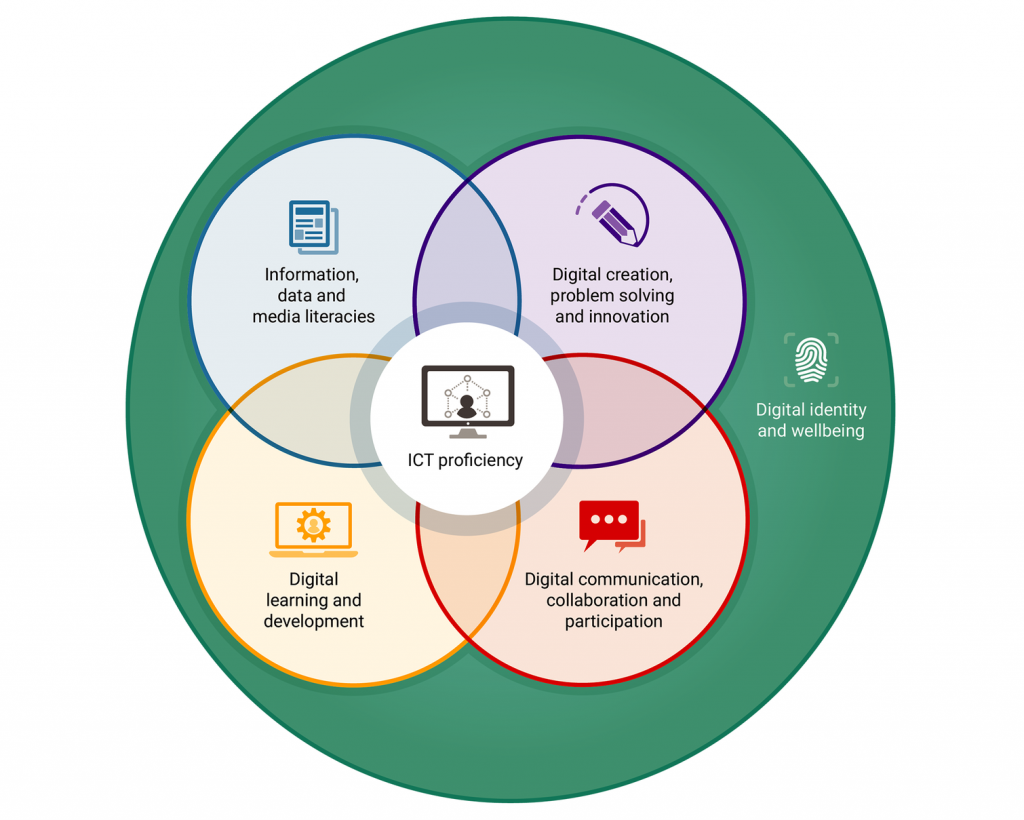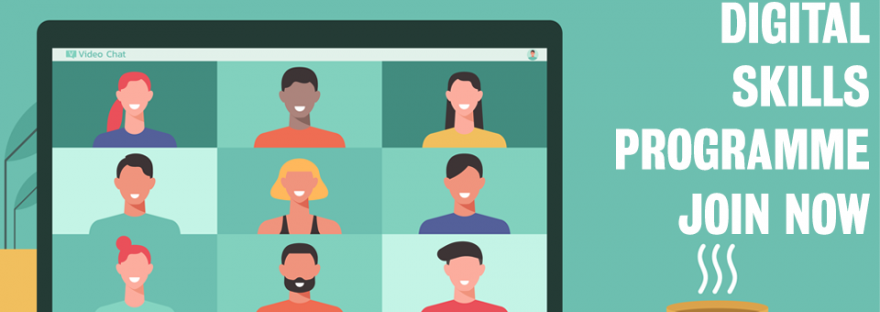Digital competence and confidence are thought to be critical for success in higher education. However, despite a significant proportion of learning being online and evidence to counter the idea of digital nativity, these critical skills are often not explicitly taught at university. The COVID-19 pandemic outlined why it is so important for students to have the digital capabilities required to thrive in their academic, personal and professional lives. This blog reflects on the process King’s College London went through to create the Essential Digital Skills programme.
The UK went into lockdown in March 2020 due to the global pandemic, forcing teaching and learning at King’s College London to be moved fully online for the rest of that year and the 2020/2021 academic year. The term digital capability was back in the spotlight, but its definition and scope were not well understood. According to Jisc, “digital capability is the term we use to describe the skills and attitudes that individuals and organizations need if they are to thrive in today’s world” (https://digitalcapability.jisc.ac.uk/what-is-digital-capability/). For university students it can be defined as the knowledge, skills, and attitudes that they must possess to effectively use digital technologies to evaluate, consume and produce learning information, and to communicate and collaborate with others for learning (Janssen et al., 2013; Wang et al., 2021). A combination of the JISC six elements of digital capabilities and the Open University digital and literacies framework were used to guide the scope of what needed to be included in the support offered to students.

By April 2020, King’s had a proposal for a new online, self-paced, Essential Digital Skills Programme that aimed to:
- Raise awareness about the importance of digital capabilities.
- Increase access to digital skills training to support students’ academic, professional and personal development.
- Ensure students are aware of key services, systems and processes that are available to support their academic, professional and personal development.
- Increase students’ confidence in using technology to support their learning and development throughout their time at King’s and beyond.
- Increase students’ digital competence to support their academic development.
In addition to the programmes aims, the proposal clearly outlined the:
- Definition and scope of digital capabilities (as mentioned above).
- Rationale, value, and potential benefits- such as how it supports students’ transition, induction, retention, and progression.
- Target audience- undergraduate and postgraduate students.
- Duration- such as how long the programme would be (it was 30 hours in the end).
- Delivery- fully online, self-paced and delivered via Moodle (KEATS).
- Cost- such as how existing software licenses could be better utilized.
- Recommendations- such as use of incentives, inclusion of assessments to reinforce and measure learning, cross department collaborative working to create and deliver content (e.g. IT creating ICT proficiency content, Library services delivering information, data and media literacies content etc).
- Implementation considerations- such as including as much automation within the programme as possible, and ways of measuring uptake and engagement.
Sending the proposal to senior stakeholders with decision making authority, enabled the programme development to begin. The quick decision to endorse the programme saved time and helped to communicate its importance to other staff members.
By June 2020, the lesson plan templates, and exact learning outcomes were created and sent to the area leads to begin creating the material required. A strict timeframe of one month was provided, to enable enough time for the content creators and instructional designers to storyboard the lessons, and to convert text-based content into more engaging formats (such as videos, audio and pictures), and carry out the required testing between July and August 2020). The decision was taken to phase the programme in by chapters, due to the time constraints. There were 4 chapters in total, and chapter 1 was ready and released in September 2020, ahead of Welcome Week. Whilst chapters 2, 3 and 4 were released in October 2020, November 2020, and February 2021 to compliment the student journey.

There were a variety of approaches used to communicate the programme’s importance and details to students (which will be outlined in a future blog).
How the programme would be evaluated was at the forefront of our minds right from the proposal. The use of assessments (quizzes) was just one method we used to track and measure learning. Both qualitative and quantitative data was collected, and by the end of the 2020-2021 academic year, we could confidently show that the programme was successful in achieving its aims and its level of impact. A future blog will outline the evaluation strategy and impact the Essential Digital Skills Programme had in more detail, along with the successes, and challenges of creating a programme like this.
Written by Nabila Raji
I am the Digital Education Manager at the Centre for Technology Enhanced Learning (CTEL) at King’s College London. I am the professional service lead for digital capabilities, which includes the Essential Digital Skills Programme and LinkedIn Learning implementation and management. My role also includes communication strategy and implementation, student engagement and change management.
I have a background in Occupational Psychology, and I am passionate about helping students to reach their potential by using technology to remove barriers to success. I am a strategic thinker that enjoys finding and implementing practical, scalable, and sustainable solutions to organizational problems.
